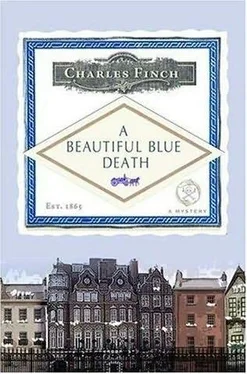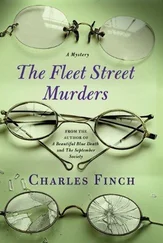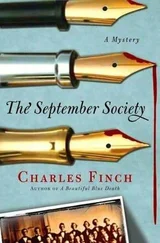Charles Finch - Beautiful blue death
Здесь есть возможность читать онлайн «Charles Finch - Beautiful blue death» весь текст электронной книги совершенно бесплатно (целиком полную версию без сокращений). В некоторых случаях можно слушать аудио, скачать через торрент в формате fb2 и присутствует краткое содержание. Жанр: Исторический детектив, на английском языке. Описание произведения, (предисловие) а так же отзывы посетителей доступны на портале библиотеки ЛибКат.
- Название:Beautiful blue death
- Автор:
- Жанр:
- Год:неизвестен
- ISBN:нет данных
- Рейтинг книги:5 / 5. Голосов: 1
-
Избранное:Добавить в избранное
- Отзывы:
-
Ваша оценка:
- 100
- 1
- 2
- 3
- 4
- 5
Beautiful blue death: краткое содержание, описание и аннотация
Предлагаем к чтению аннотацию, описание, краткое содержание или предисловие (зависит от того, что написал сам автор книги «Beautiful blue death»). Если вы не нашли необходимую информацию о книге — напишите в комментариях, мы постараемся отыскать её.
Beautiful blue death — читать онлайн бесплатно полную книгу (весь текст) целиком
Ниже представлен текст книги, разбитый по страницам. Система сохранения места последней прочитанной страницы, позволяет с удобством читать онлайн бесплатно книгу «Beautiful blue death», без необходимости каждый раз заново искать на чём Вы остановились. Поставьте закладку, и сможете в любой момент перейти на страницу, на которой закончили чтение.
Интервал:
Закладка:
“What do you mean?”
“The coinage.”
“The mint’s gold? To go into circulation next month?”
“Yes.”
Lenox sat back and whistled softly.
The mint was located in a very secure building in Little Tower Hill, near the Tower of London. It was a yellowing stone building that sat behind a tall iron fence. Its front was pillared and wide, though it was only very rarely that somebody went in or out. In a busy street, it was silent. Whenever Lenox passed it he felt the million jealous eyes that had stared at it in the past. Inside, delicate machinery converted bars of pure gold into exact-weight coins, which were then distributed to the nation.
Barnard ran this operation with great care. For instance, it had once been very common to see nicked coins, with little pieces cut out of the sides, not enough to render them worthless, but enough that if the nicks were in a pile they were worth something. Barnard was the first director of the mint to recall nicked coins and melt them back down into gold ingots. This was the sort of care he took.
“Impossible,” Lenox said.
“I’m afraid it’s true,” said Edmund.
“That changes things a bit.”
Edmund laughed. “A pile of gold is slightly more important than Mrs. Shattuck’s serving fork.”
Lenox couldn’t help but laugh, too. “But why?” he said.
“The mint was no longer secure. There had been attacks.”
“Who attacked it?”
“We don’t know. There’s an ongoing investigation. A very threadbare rumor says the Hammer Gang, who run by the docks and control a good deal of the prostitution and robbery over there along Canary Wharf, but that may be false. Probably is.”
“But then why not a bank? Or the Parliament?”
“Neither is safe. Neither has half the precautions of the mint, and they’re both too public.”
“But Barnard’s house?”
“The attacks on the mint were persistent and very careful. Whoever did them would get past several guards, giving them a sleeping pill or too much gin or a blow to the head, and then retreat when it became too dangerous. But they had penetrated farther and farther at each attack, and by the end they were close to the gold, no matter how many guards we put out.”
“I see,” said Lenox.
“Yes. We had to throw them far off the trail. Barnard also had a perfect room for it-difficult to get to, with only one access point, easily guarded. He is the director of the mint, Charles, and it is a closely guarded secret.”
“That’s true.”
“And Barnard cares too much for his position, and his reputation, to let anyone near the gold. He has men around it all the time who don’t even know what they’re guarding. He probably told them they were looking after a rare orchid.”
“True too, I suppose.”
“Perhaps that’s why he wanted the murder to be a suicide so much,” said Edmund. “Scared of an attempt on the gold.”
“You may be right.”
“At any rate, the gold will be there for the next two weeks, nearly two million pounds. Anyone who stole it would immediately become one of the richest people in the British Empire.”
“Where in the house?”
“In a secret room beneath his greenhouse.”
Lenox whistled again, more loudly this time.
“Well,” he said. “This is an entirely new case.”
“It is, I think,” said Edmund. “But I hope you appreciate the utter secrecy which I must ask of you. For the next two weeks, that means the cost may rise as high as delaying the murderer’s arrest.”
“I know,” said Lenox. “But you were right to tell me.”
“You understand, needless to say, that the board of trade is having difficulties, and that our economy must hum along with regularity for the next year, for Lord Russell’s government to accomplish anything whatsoever.”
“I understand. Though I am unused to hearing you speak so strongly about the government.”
“We were both raised to serve, Charles.”
They looked at each other.
“Well,” said Lenox, “shall we have the trifle for dessert.”
Chapter 10
E dmund’s revelation about the mint’s gold had rendered the source of the bella indigo no less important, and as soon as he left Parliament Lenox took a cab to Jensen’s. It had begun to snow again, and Lenox looked forward to five o’clock, when he could have his tea. It was more the pleasure of the ceremony and the comfort of his fireside that he looked forward to, for of course he was still full from lunch.
Jensen’s was not the chemist whose name Thomas McConnell had given him-the sole apothecary in the city of London who sold bella indigo, to his knowledge-but Willie Jensen was a man Lenox knew and trusted and one with whom he had consulted before. His apothecary was on a corner somewhat close to Hampden Lane, in Brook Street, and Lenox often passed it when, as was his custom, he took long walks after supper. The shop had a bright lantern hanging in front of it above a large chalkboard advertising its goods.
He arrived at a little past two and pushed open Jensen’s door. The space inside was small but tidy and smelled of cinnamon and soap. There were rows of creams, hairbrushes, and powders on plain wooden shelves along the walls, and rows of small, apparently unmarked bottles behind the counter. Jensen himself was an old man, who smoked without cease throughout the day and spoke in a thick brogue. He had tufts of white hair in his ears, none on his head, and white whiskers on his cheeks.
A customer was already at the counter. He appeared to be a footman, and he was, Lenox overheard, seeking a respite from the gout for his employer, one Lord Robinson of Bruton Street. Jensen told the footman that his master would need to see a doctor-to which the servant responded with a horrified shake of his head, betraying, no doubt, Lord Robinson’s own prejudice-and gave him a small bottle of medicine.
“Twice a day,” he said, “and tell Lord Robinson to eat lightly.”
This suggestion met with a reaction even more violent than the one to seek out a doctor, and by the time the footman hurried through the door, Lenox had begun to picture this lord as grotesquely fat and singularly averse to medical treatment and fewer than seven courses for dinner. Too fat to attend the House of Lords, or his name would have been familiar.
“Mr. Jensen,” he said, approaching the counter, “I fear I shall be no easier a customer than that young man.”
“What ails you, Mr. Lenox, sir?” said Jensen, in a strong Irish accent.
“Something called bella indigo, I’m afraid.”
“Wait a moment, sir, while I get my spectacles.” The old man reached beneath the counter for his glasses and put them on. “Ah,” he said, squinting through them.
“What demands such close inspection?” asked Lenox.
“You’re the first ghost I’ve gazed upon, sir.”
Both men laughed, the detective with his head thrown back and the chemist in a thick, rasping voice.
“Mr. Jensen,” said Lenox, still laughing, “I believe that’s the first joke I’ve ever heard you tell.”
“I was savin’ her up, sir.”
“It was worth the wait.”
Lenox chuckled again, and Jensen lit a short cigarette, which fit snugly in his hand.
“Now, sir, how’ve you come across a thing as nasty as bella indigo, if I might ask?”
“In a case for Lady Jane Grey.”
“Must be ugly business, Mr. Lenox.”
“Uglier by the moment, Mr. Jensen.”
“Tell me how I can help you, sir.”
Lenox pulled McConnell’s piece of paper from his pocket. “Have you heard of a man named Jeremiah Jones? Another chemist?” he asked.
“How did you get that name?”
“My friend Thomas, the doctor you once met.”
Читать дальшеИнтервал:
Закладка:
Похожие книги на «Beautiful blue death»
Представляем Вашему вниманию похожие книги на «Beautiful blue death» списком для выбора. Мы отобрали схожую по названию и смыслу литературу в надежде предоставить читателям больше вариантов отыскать новые, интересные, ещё непрочитанные произведения.
Обсуждение, отзывы о книге «Beautiful blue death» и просто собственные мнения читателей. Оставьте ваши комментарии, напишите, что Вы думаете о произведении, его смысле или главных героях. Укажите что конкретно понравилось, а что нет, и почему Вы так считаете.












